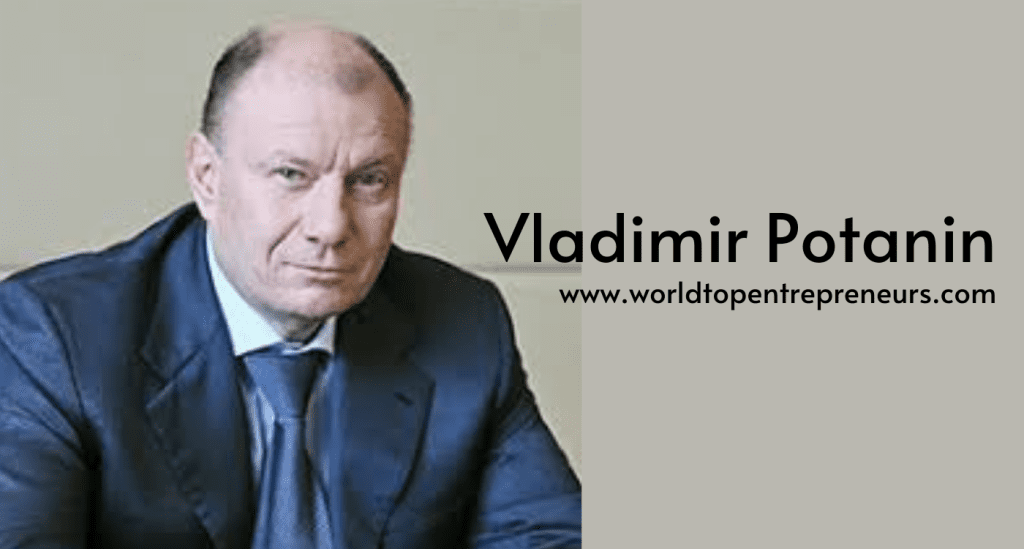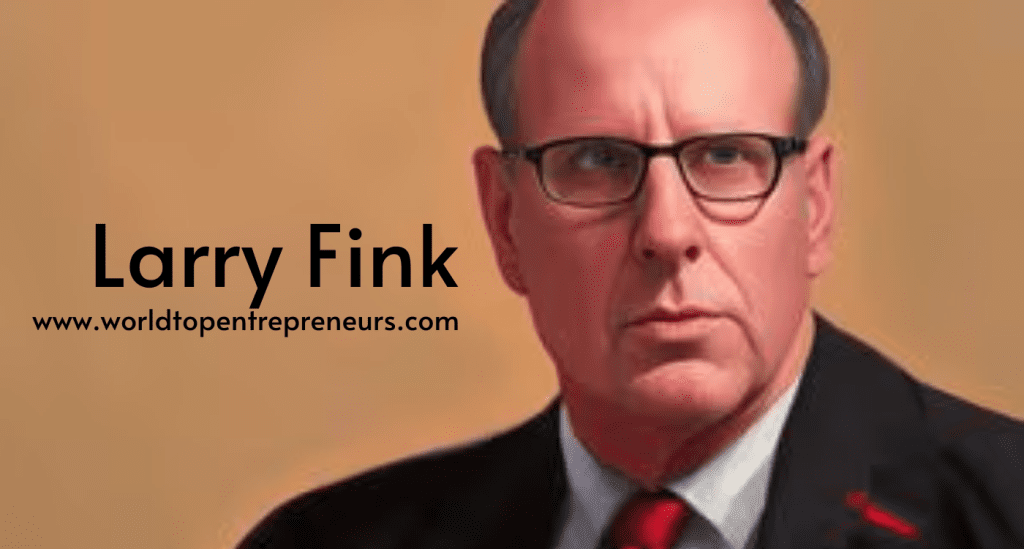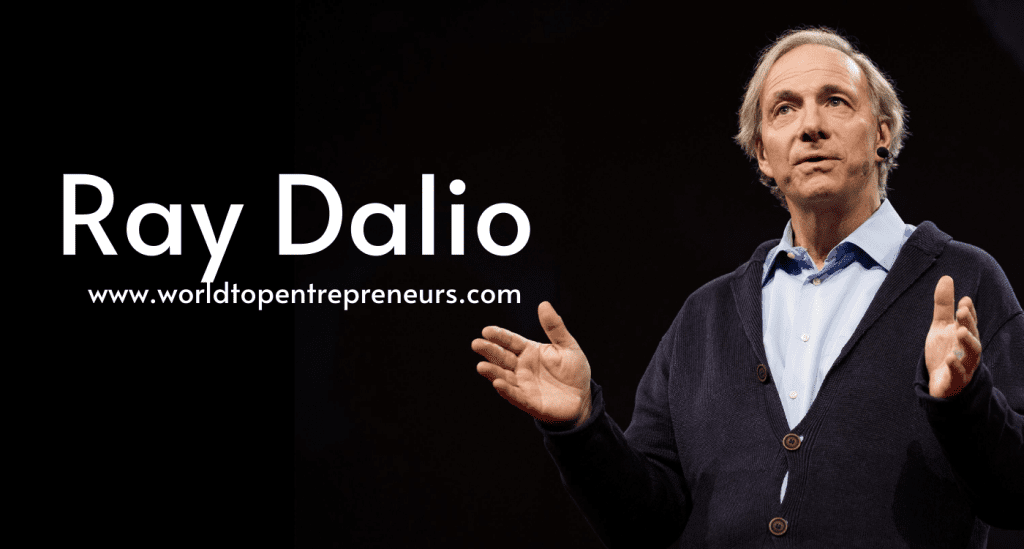Vladimir Potanin is one of Russia’s most influential and wealthy businessmen, known for his role in building and leading Interros, a diversified investment company that holds stakes in several major industries, including metals, energy, finance, and real estate. Potanin’s entrepreneurial journey is marked by significant milestones in the privatization era of Russia, strategic business decisions, and the evolution of his company into a leading player in the Russian economy. He is considered one of the key figures of the so-called “Russian oligarchs” who rose to prominence during and after the collapse of the Soviet Union.
This blog takes a detailed look at Vladimir Potanin’s background, entrepreneurial journey, the challenges he faced, his successes, and the role of Interros in his business empire.
Early Life and Educational Background
Vladimir Potanin was born on January 3, 1961, in Moscow, Russia, into a well-educated family. His father, a prominent economist, was deeply involved in the Soviet economic system, which likely influenced Potanin’s later interest in business and finance.
Potanin’s education began at the Moscow State Institute of International Relations (MGIMO), one of Russia’s most prestigious universities, where he earned a degree in international economics. The MGIMO network has historically been a breeding ground for many of Russia’s political and business elite, and it was here that Potanin honed the economic and managerial skills that would later serve him well in the business world.
After completing his degree at MGIMO, Potanin also attended the International Management Institute in Geneva, Switzerland, further solidifying his understanding of international business and economics. His education exposed him to global business practices and provided a broader perspective that would be instrumental in navigating the post-Soviet economic transition.
Early Career: The Path to Entrepreneurship
After finishing his education, Potanin started his career in the Soviet Union, where he worked in a variety of governmental and business roles. In the late 1980s, as the Soviet Union began to open up to market reforms under Mikhail Gorbachev, Potanin recognized the opportunity to engage in the burgeoning world of private enterprise.
He began his entrepreneurial journey in the early 1990s when Russia was undergoing a massive economic transformation. With the fall of the Soviet Union in 1991, privatization swept through Russia, and Potanin quickly capitalized on the opportunities created by the collapse of state-owned enterprises. During this time, many former state-owned industries were privatized, leading to the rise of private oligarchs who acquired significant stakes in key industries.
Founding Interros and Key Business Ventures
In 1993, Potanin co-founded Interros, a diversified investment company. This company would become the cornerstone of his business empire and a key player in Russia’s economic transformation. Interros began by acquiring shares in a range of Russian businesses, with a particular focus on the metals and mining sectors. The company’s first major success came in the early 1990s when it acquired a controlling stake in Norilsk Nickel, a Russian mining company and one of the world’s largest producers of nickel and palladium.
The acquisition of Norilsk Nickel turned out to be one of the most lucrative business moves in Potanin’s career. Under his leadership, Norilsk Nickel grew rapidly, and Potanin’s financial acumen helped transform it into a global leader in the production of metals. The success of this venture established Potanin as one of Russia’s most powerful and influential businessmen, and it remains the cornerstone of Interros’ holdings.
As Potanin continued to grow Interros, he expanded the company’s portfolio to include a range of industries. In addition to metals and mining, Interros invested in energy, finance, real estate, and manufacturing. The company played a major role in the privatization of state-owned assets during the 1990s, particularly in key sectors such as oil and gas.
Potanin’s Role in the Russian Oligarchy
Vladimir Potanin is often grouped with other businessmen who came to be known as the “Russian oligarchs”—a term used to describe a small group of individuals who gained significant wealth and power during the chaotic privatization process of the 1990s. These oligarchs, many of whom had close ties to the government, acquired large swaths of state-owned assets, and their fortunes were built through a combination of business savvy, political connections, and timing.
While some of Potanin’s contemporaries, such as Roman Abramovich or Mikhail Khodorkovsky, garnered international attention due to their ties to the Russian political elite or their roles in major industries like oil and steel, Potanin’s reputation has largely remained centered around the metals sector, particularly Norilsk Nickel.
Potanin was seen as one of the more reserved and less politically flamboyant figures among the Russian oligarchs, and while his wealth and influence have been significant, he has maintained a relatively low profile on the international stage.
Struggles and Challenges
Like many oligarchs, Potanin has faced his share of challenges throughout his career. The path to wealth in post-Soviet Russia was far from smooth, and the 1990s were marked by political instability, economic turmoil, and intense competition for control of privatized assets.
- Legal and Political Challenges: Potanin, like many of his peers, faced legal and political challenges as the Russian government periodically attempted to reassert control over the nation’s wealth. The political landscape in Russia during the 1990s and 2000s was marked by frequent shifts in power, and at times, oligarchs found themselves in conflict with the Kremlin. However, Potanin managed to navigate these tensions with a combination of diplomacy and business acumen, often aligning himself with the interests of the government in a way that preserved his business empire.
- Market Volatility and Economic Crises: Russia’s economy has been prone to volatility, and Potanin’s companies were not immune to the challenges posed by fluctuating commodity prices, inflation, and economic downturns. For example, the 1998 Russian financial crisis, which was triggered by a collapse in oil prices and a currency devaluation, had a significant impact on many Russian businesses, including Potanin’s. However, his ability to manage risks and adapt to changing market conditions has been a key factor in his long-term success.
- Ownership and Control of Norilsk Nickel: One of Potanin’s most notable business struggles occurred in the 2000s when he faced a bitter power struggle over Norilsk Nickel. The conflict was with Oleg Deripaska, another Russian oligarch, over control of the mining giant. The dispute culminated in a complex legal and corporate battle, which eventually saw Potanin maintain control of the company, securing his position as one of the leading figures in the Russian business world.
Major Successes
Despite the challenges, Vladimir Potanin’s entrepreneurial journey is defined by numerous successes, many of which have had a lasting impact on Russia’s economy.
- Norilsk Nickel: Potanin’s acquisition of Norilsk Nickel remains his most significant success. Under his leadership, the company grew into a global leader in the production of nickel and other precious metals, solidifying Potanin’s reputation as one of the most successful businessmen in Russia. Norilsk Nickel remains one of the largest and most profitable companies in Russia, and Potanin’s role in its success cannot be overstated.
- Diversification of Interros: Over the years, Interros has expanded into a broad array of sectors. Potanin’s diversification strategy allowed the company to weather economic downturns and stay profitable across different industries. Interros has interests in real estate, finance, energy, and consumer goods, making it one of the most prominent investment firms in Russia.
- Strategic Partnerships and Investments: Potanin has demonstrated a keen ability to form strategic partnerships with both domestic and international investors. His business acumen in navigating the complexities of the Russian market and attracting foreign investment has been crucial in the expansion of Interros. Potanin’s investments have also contributed significantly to the development of key Russian industries, from banking and energy to metals and infrastructure.
- Philanthropy and Social Projects: In addition to his business success, Potanin has also been involved in philanthropic efforts. He has supported educational initiatives and social projects through the Vladimir Potanin Foundation, which focuses on supporting cultural, educational, and social initiatives in Russia. This commitment to philanthropy has enhanced his public image and allowed him to give back to Russian society.
The Legacy of Vladimir Potanin and Interros
Vladimir Potanin’s legacy is intertwined with the development of Russia’s modern business landscape. His leadership at Interros has been instrumental in shaping some of the country’s most significant industries. From his pioneering role in the privatization of state assets to his management of one of Russia’s largest companies, Potanin has had a lasting influence on the Russian economy.
Looking ahead, Potanin’s Interros continues to play a critical role in Russia’s economic growth. The company’s diversified portfolio, its leadership in the mining and metals sectors, and its investments in key industries ensure that Potanin’s business empire will remain a significant force in the Russian business world for years to come.
Conclusion
Vladimir Potanin’s entrepreneurial journey from a Soviet-educated economist to a leader of one of Russia’s most powerful investment firms is a testament to his business acumen, resilience, and strategic vision. Despite the challenges of Russia’s volatile political and economic landscape, Potanin has built a lasting empire through his leadership at Interros and his role in the privatization era





















